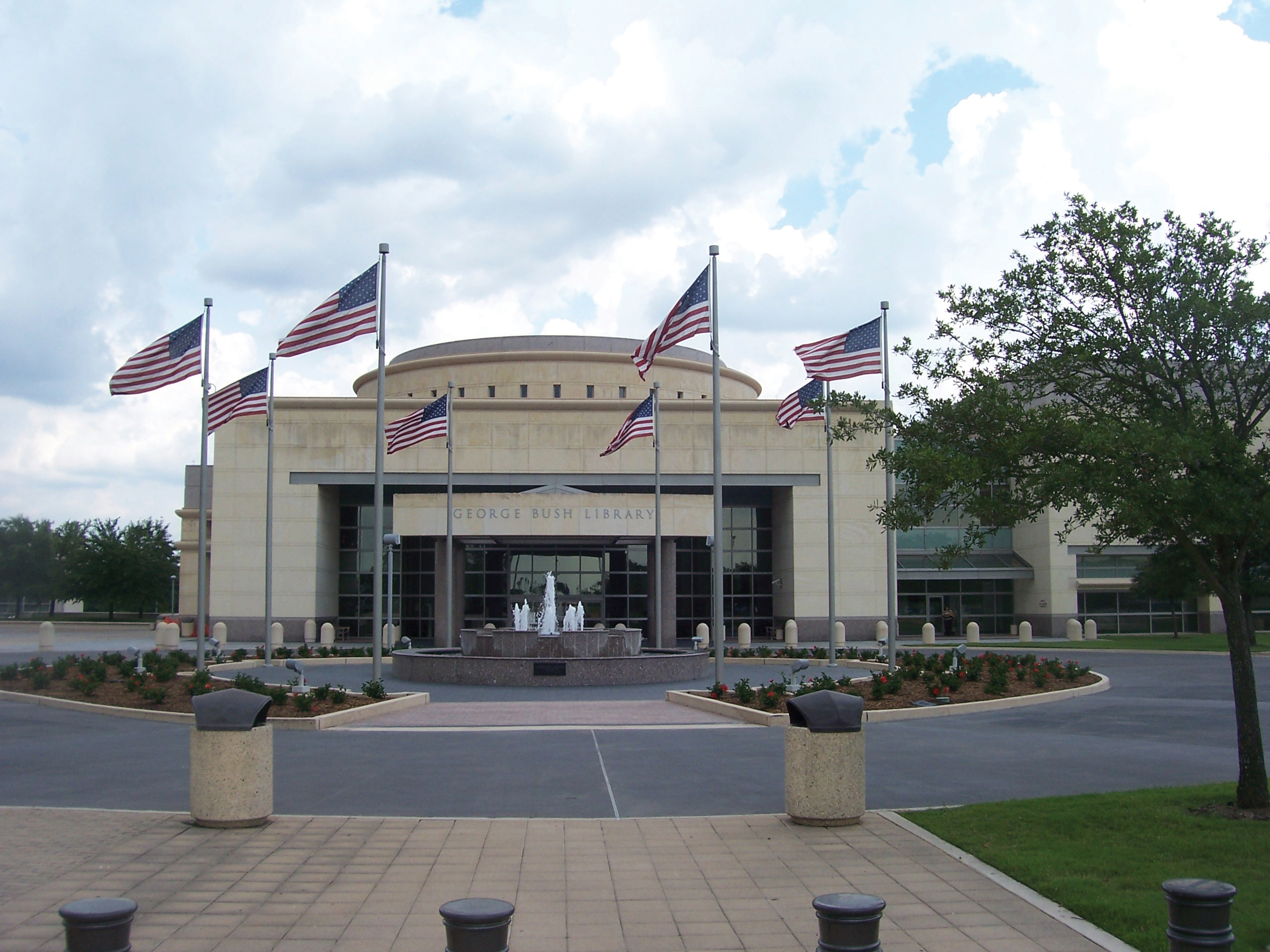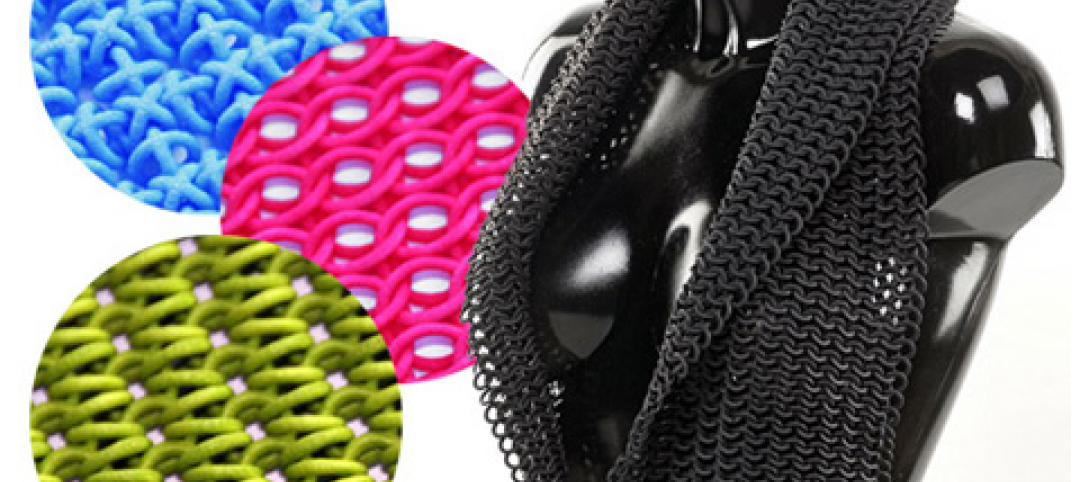Roof leaks can be a museum’s worst enemy, threatening water damage to artifacts and disturbing delicately controlled indoor environments. That’s why an $8.3 million renovation to the core exhibits at the George H.W. Bush Presidential Library and Museum in 2007 was done in parallel with fixing approximately 75,000-sf of the flat, spray-applied polyurethane foam (SPF) roof that had provided almost 10 years of service.
“We were redoing the core exhibit so I thought it was a good time to check the roof,” explains Robert Spacek, Facility Operations Specialist for the George H.W. Bush Presidential Library and Museum.
The original roof was a foam and silicone-coated system. Although SPF roofs can often last 20 years or more, and are renewable indefinitely with simple recoats every 10-15 years, this one was showing some wear and tear. As part of the renovation, there was talk of tearing off the existing roof and replacing it with another solution. This option, however, would be extremely expensive and time-consuming. Plus, the artifacts and records would have had to be moved and the building closed to the public during renovations.
“This particular roof was still in excellent shape and performing well. There was nothing wrong with the base foam roofing insulation,” explains John Austin, Vice President of Spray Polyurethane Foam and Coatings for F.W. Walton Inc., the contractor on the project. “But there were some leaks related to the rotunda and control joints in the windows, and membrane repairs were ineffective to prevent those roof leaks.”
Spacek made a request to the National Archives and Records Administration (NARA) for funding for the roofing project. The NARA architects were subsequently asked to research the cost of replacing the entire roof. After consulting with BASF technical experts, it was discovered that only certain parts needed minor repairs, so a tear-off and replacement could be avoided.
Once the project was approved, the bid went to Houston-based F.W. Walton, Inc. Having found the root of the problem, Austin used ELASTOSPRAY SPF from BASF to perform minor repairs on various parts of the existing roof, followed by a recoat of the entire roof to provide a consistent and fresh aesthetic appeal. This renewal would continue to deliver on the energy savings inherent in SPF roofing systems, prolong the life expectancy of the original roof and provide a quick installation with minimal disruption. All at a far reduced cost compared with a tear off and replacement. Plus, it would divert a lot of waste from landfills.
For more information, contact:
BASF Corporation
100 Park Avenue
Florham Park, NJ 07932
info@basfconstruction.us
construction.basf.us
And thanks to the decision to repair and recoat the original roof, the work didn’t inconvenience the public or expose artifacts to the elements.
“We didn’t have to change anything,” says Spacek, who adds that it was his first big job with this type of roofing system. “Things went really well. The contractor was very easy to get along with. In all honesty, I didn’t understand a lot about this stuff until I started this job. I am very pleased with the results. It has been a very satisfactory experience for me.” +
Related Stories
| Nov 15, 2010
Gilbane to acquire W.G. Mills, Inc.
Rhode Island-based Gilbane Building Company announced plans to acquire W.G. Mills, Inc., a construction management firm with operations based in Florida. The acquisition will dramatically strengthen Gilbane’s position in Florida’s growing market and complement its already established presence in the southeast.
| Nov 11, 2010
Saint-Gobain to make $80 million investment in SAGE Electrochromics
Saint-Gobain, one of the world’s largest glass and construction material manufacturers, is making a strategic equity investment in SAGE Electrochromics to make electronically tintable “dynamic glass” an affordable, mass-market product, ushering in a new era of energy-saving buildings.
| Nov 11, 2010
Saint-Gobain to make $80 million investment in SAGE Electrochromics
Saint-Gobain, one of the world’s largest glass and construction material manufacturers, is making a strategic equity investment in SAGE Electrochromics to make electronically tintable “dynamic glass” an affordable, mass-market product, ushering in a new era of energy-saving buildings.
| Nov 11, 2010
USGBC certifies more than 1 billion square feet of commercial space
This month, the total footprint of commercial projects certified under the U.S. Green Building Council’s LEED Green Building Rating System surpassed one billion square feet. Another six billion square feet of projects are registered and currently working toward LEED certification around the world. Since 2000, more than 36,000 commercial projects and 38,000 single-family homes have participated in LEED.
| Nov 10, 2010
$700 million plan to restore the National Mall
The National Mall—known as America’s front yard—is being targeted for a massive rehab and restoration that could cost as much as $700 million (it’s estimated that the Mall has $400 million in deferred maintenance alone). A few of the proposed projects: refurbishing the Grant Memorial, replacing the Capitol Reflecting Pool with a smaller pool or fountain, reconstructing the Constitution Gardens lake and constructing a multipurpose visitor center, and replacing the Sylvan Theater near the Washington Monument with a new multipurpose facility.
| Nov 9, 2010
Just how green is that college campus?
The College Sustainability Report Card 2011 evaluated colleges and universities in the U.S. and Canada with the 300 largest endowments—plus 22 others that asked to be included in the GreenReportCard.org study—on nine categories, including climate change, energy use, green building, and investment priorities. More than half (56%) earned a B or better, but 6% got a D. Can you guess which is the greenest of these: UC San Diego, Dickinson College, University of Calgary, and Dartmouth? Hint: The Red Devil has turned green.
| Nov 9, 2010
12 incredible objects being made with 3D printers today
BD+C has reported on how 3D printers are attracting the attention of AEC firms. Now you can see how other creative types are utilizing this fascinating printing technology. Among the printed items: King Tut’s remains, designer shoes, and the world’s smallest Rubik’s Cube.
| Nov 9, 2010
U.S. Army steps up requirements for greening building
Cool roofs, solar water heating, and advanced metering are among energy-efficiency elements that will have to be used in new permanent Army buildings in the U.S. and abroad starting in FY 2013. Designs for new construction and major renovations will incorporate sustainable design and development principles contained in ASHRAE 189.1.









